How All of Russian TV Became State-Controlled
Short biography of the freedom that never happened.


During the Soviet Union, the State Committee for Cinematography was the primary controlling organisation of the film industry and the key censoring institution. Any film submitted for release was subjected to numerous inspections by committee members.
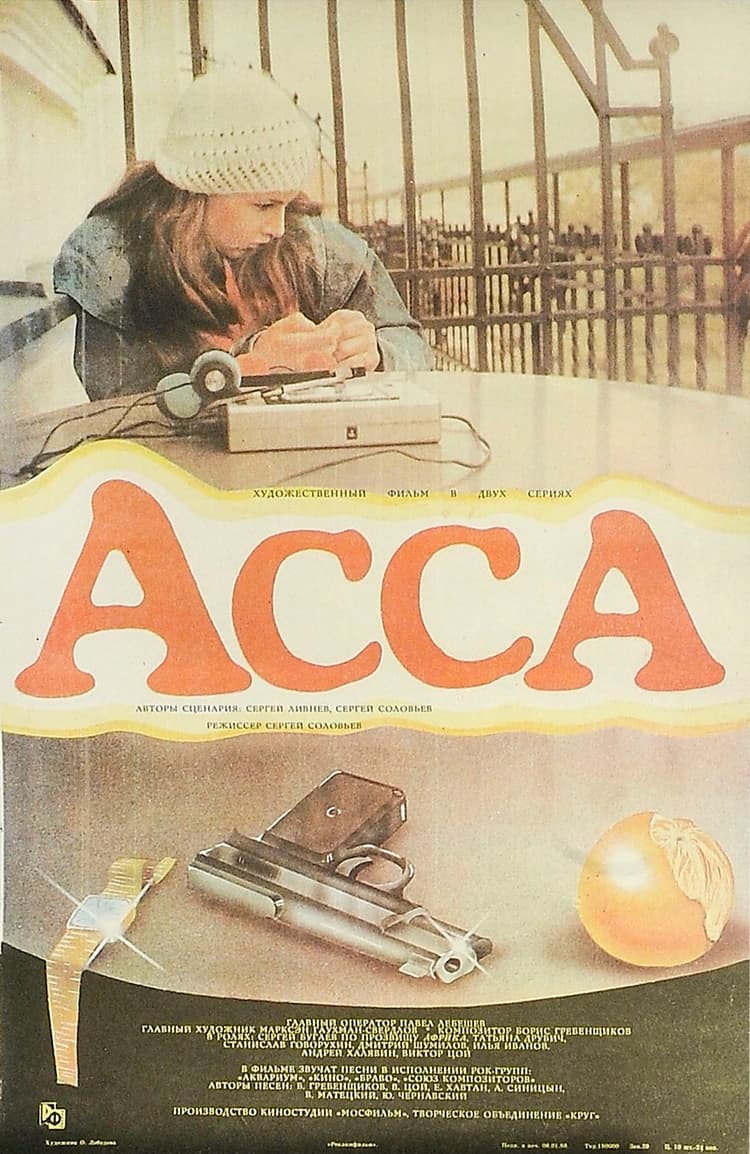
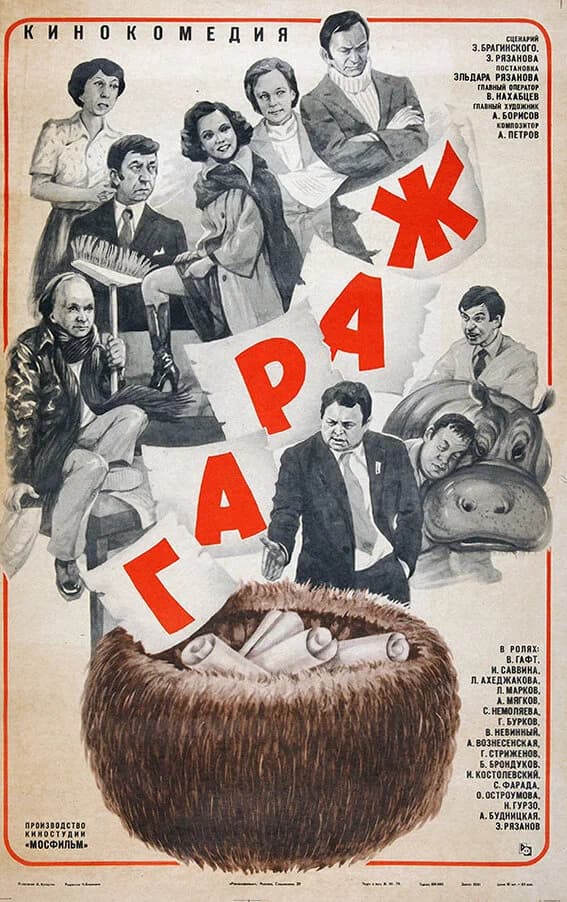
During Mikhail Gorbachev’s reign, everything began to change during the “Perestroika” period. During this time (1985—1991), the Soviet Union’s cinematography began to transition to a market-oriented economy. It was becoming less reliant on the state, but with the independence that came with the elimination of censorship came financial challenges for the cinema of that time. The film business could not support itself. Later, it had an impact on 90s cinematography. The number of cinemas and productions in Russia decreased drastically in the latter decade of the twentieth century. At the same time, auteur cinematography was developing. This made sense: since there wasn’t enough money to produce big-budget movies, a few cinema theatres were crowded with low-budget independent films.
Due to an abundance of political, economic, and social difficulties in Russian society during the 1990s, the problems of cinematography remained unsolved for a long time. At the same time, the state’s decreased interest in this field made cinema a free arena for every sort of expression.
Economic growth in the 2000s stimulated the development of the film industry. Big-budget Russian blockbusters began to debut on screens in the first decade. During this time, the film industry expanded gradually in terms of entertainment film streaming. However, when compared to the American and European film industries, the amount of film production in Russia was minimal. At the same time, the cultural sphere, and particularly the film sector, became the focus of Russian authorities’ attention during this period.
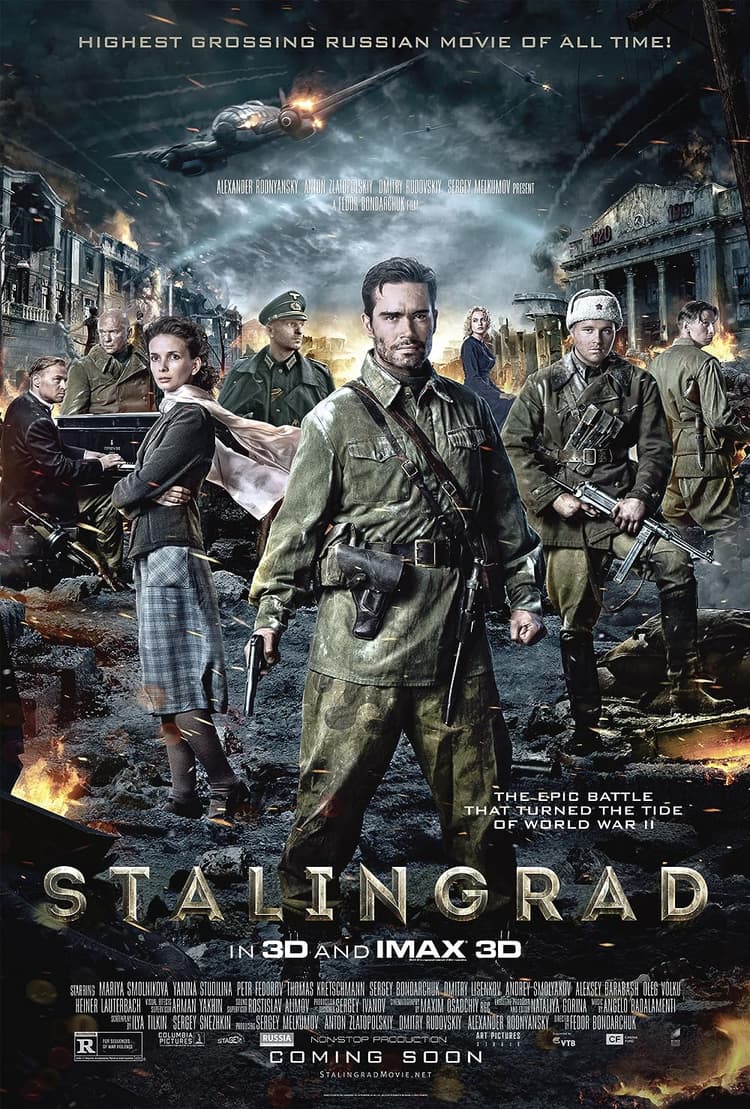
Over the last decade, officials have frequently discussed the need for government support for the film industry. This need is understandable. There are numerous programs in this field in Europe, for example, in France. The film industry support structure has been functioning there since 1948 and is constantly being improved and developed. It is based on simple and transparent principles: the government takes a certain amount of money from the release of finished films and distributes it to ensure that all of the main goals are met. Unlike in Russia, task prioritising in France is dictated by the necessity to promote an increase in the economic success of cinema (and the flow of funds for reinvestment in film) on the one hand and to provide an opportunity for creative experimentation and debut on the other. In addition to sharing existing resources, the government seeks to create conditions suitable for attracting private investments and lowering investor risks.
In Russia, cinema support is related to subsidisation, which is frequently gratuitous. On the one hand, this permits producers to return to the Ministry of Culture and the Cinema Fund each year for “free” funding, but on the other hand, it allows state organisations to set their own terms for receiving subsidies. As a result, researchers believe that ways of supporting cinematography are directly related to the establishment of state control over cinema.
At the moment, two primary entities promote and monitor Russian cinema: The Ministry of Culture of the Russian Federation, which concentrates on debut, auteur cinema, festival cinema, and animation, and the Cinema Fund, which funds big-budget films. They have now been joined by the Internet Development Institute, which intends to help movies distributed on streaming sites.
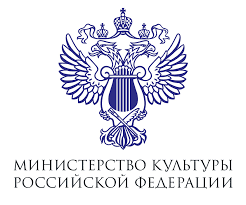
The Ministry of Culture of the Russian Federation does not have the same range of power as the Soviet Union’s GosKino. It cannot, for example, directly regulate film productions or refuse to fund projects that do not correspond to government principles. However, experts note that the Ministry of Culture uses indirect methods for it. One method of applying such control is to select priority subjects for films. From 2014 through 2022, there are several priority themes in Russian cinema1:
One of the most popular topics is the Great Patriotic War. Battle for Sevastopol (2014), Panfilov’s 28 Men (2016), Sobibor (2018), Kalashnikov (2020), The Last Frontier (2020), and Zoya (2020) – such films are released every year.
The priority themes for 2023 demand special attention. Among them are:
The identification of such topics is an important propaganda technique. However, it can also be viewed as a form of indirect censorship, as films that do not fall into these categories are not eligible for funding.
Furthermore, to receive a subsidy, a project must first pass an evaluation by the film department, then be examined by an expert council, and finally, be presented in front of specialists during an open pitching session. Subsidisation can be denied at any of these steps. According to experts, this process functions as a form of hidden censorship, as Ministry of Culture officials, who are part of the “power vertical,” can deny subsidies to an undesirable film because it does not comply with the competition’s rules, or choose from the finalists’ projects that are ideologically aligned with Putin’s regime.
Our goal is to support national cinematography, increase its competitiveness, and provide conditions for the creation of quality films that are in line with national interests.
Mission of The Charter of the Cinema Foundation
The same charter also establishes other ground principles for the organisation’s functioning. The Fund’s Council is the Fund’s highest collegial body. Its responsibilities include, among other things, choosing and authorising film companies to receive Fund assistance. This committee is in charge of allocating the Fund money to film businesses and projects. According to the Cinema Fund Сharter, the Board of Directors is selected by the Russian Federation government. Officials and executives from pro-government media organisations such as the state-controlled and propagandised First Channel and Gazprom-Media Holding (owned by a state-controlled Russian oil firm) are currently on the board (RU). The Cinema Fund also has a board of members that regulates its operations, which the Russian government selects. The committee now only consists of government officials.
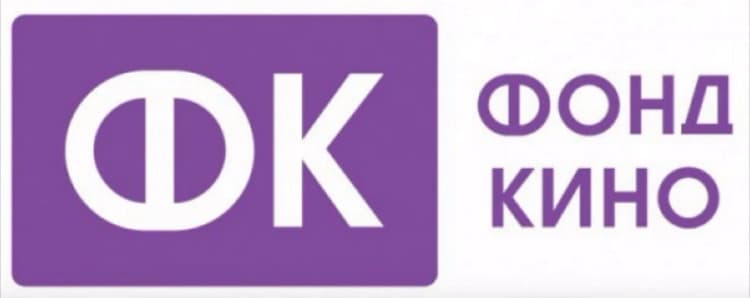
An expert committee consisting of film industry professionals, critics, and artists was formed to promote transparency in evaluating and supporting films. The expert council members prepare reviews for each of the proposals that are presented. However, it has only advisory powers; the Fund Board, which is controlled by the government, has the final say on project approval.
Experts also notice a conflict of interest in the Cinema Fund’s actions. The Foundation Board of Directors includes figures like Konstantin Ernst (Director General of First Channel), Anton Zlatopolsky (Deputy Director General of the All-Russian State Television and Radio Broadcasting Company), and Yulia Golubeva (Deputy Director General of Gazprom-Media Holding). These people represent state-owned media organisations that compete in the Cinema Fund competition and get subsidies. In other words, certain members of the Fund’s Board of Directors finance films for their organisations on a non-refundable basis, while their work is reviewed by a government-appointed Board of Trustees, which, according to official information, consists of Putin’s associates. According to experts, this offers excellent conditions for the production of "ideologically acceptable" films.
The Internet Development Institute, which was created in 2014, is currently involved in the regulation of cinematography. This institution was first founded as a venue for engagement and communication between the government and Internet corporations, but its sphere of influence has since increased. In 2019, Vladimir Putin entrusted the Russian government to establish a non-profit company to serve as the foundation for “a coordination centre for the organisation of the content production that’s oriented at the spiritual and moral education of young people and its promotion on the Internet.” The Internet Development Institute was selected as the winner. Although it is a “public organisation,” it is far from being independent of the government. The department was founded on the initiative of the state, and Alexei Goreslavsky became its leader. He served as deputy head of the Russian Presidential Administration’s Department for Public Projects from 2017 to 2020.
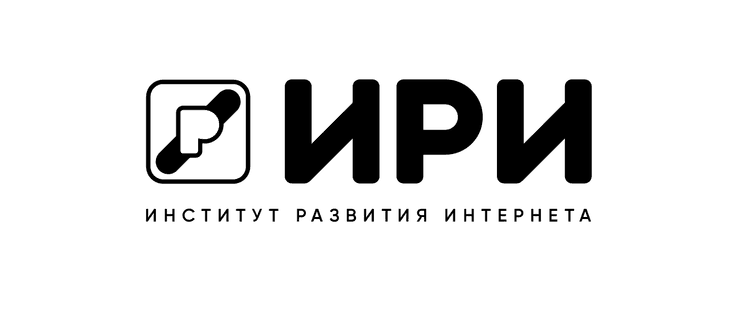
In 2021, the state budget provided 10 billion rubles to produce “spiritual and moral” content for young people, including films and TV programs, particularly for streaming platforms. The budget of the Internet Development Institute exceeds both the Ministry of Culture and the Cinema Fund combined, which have budgets of about 3.5 and 2.8 billion, respectively. In total, the IDI got more than 20 billion rubles from the federal budget in 2023, 17 of which were designated for the creation of “state content” dedicated to “civic identity” and “spiritual and moral values.”
Putin’s decree also established the Military-Patriotic Film Support Foundation in June 2022, to create and promote such films both in Russia and abroad. Its general director is Maxim Ksenzov, a former deputy director of Roskomnadzor, Russia’s leading censorship organisation. Given the time-consuming nature of film production, some have questioned the effectiveness of such an initiative: Russian director Roman Kachanov has described the activity of such committees as a corruption scheme that has little to do with cinema. Nonetheless, according to Anton Dolin, a well-known Russian cinema critic, the Russian state has succeeded in developing the genre of the military-patriotic blockbuster.

To summarise, the Russian film industry is characterised by several institutions that claim to encourage filmmaking but actually regulate it. Because Russia lacks a developed studio system like the United States, government organisations have a monopoly in this area, and the state controls all financial flows that are crucial for the industry.
Tento článek ještě nebyl přeložen do češtiny. Hledáme dobrovolníky kteří by nám s tím pomohli.
Short biography of the freedom that never happened.

How Orwell became the Russian Reality

How to explain support for Russia in German politics

Naše mediální platforma by neexistovala bez našeho mezinárodního týmu dobrovolníků. Chcete se stát jedním/jednou z nich? Zde je seznam aktuálně otevřených pozic:
Je nějaká další oblast ve které byste nám rádi pomohli? Dejte nám vědět:
Mluvíme o současných problémech Ruska a jeho obyvatel, o boji proti válce a za demokracii. Snažíme se, aby byl náš obsah co nejpřístupnější evropskému publiku.
Chcete spolupracovat na obsahu, který vytvořili ruští autoři stojící proti válce?
Chceme, aby lidé v Rusku, kteří se zasazují o mír a demokracii, byli slyšet. Zveřejňujeme jejich příběhy a děláme s nimi rozhovory v rámci projektu Ptej se Rusů.
Jste ruský občan nebo znáte někoho, kdo by se chtěl podělit o svůj příběh? Obraťte se na nás. Vaše zkušenosti pomohou lidem pochopit, jak Rusko funguje.
Vaše zkušenosti můžeme zveřejnit anonymně.
Náš projekt vedou dobrovolníci z celého světa - žádný člen týmu není nijak placen. Projekt však má provozní náklady: hosting, domény, předplatné placených online služeb (např. Midjourney nebo Fillout.com) a reklamu.
Číslo našeho transparentního bankovního účtu je 2702660360/2010, založená je u Fio Banky (Česká republika). Můžete nám buď poslat peníze přímo na něj, nebo nascanovat jeden z QR kódů níže ve vaší bankovní aplikaci:




Poznámka: QR kódy fungují pouze pokud je nascanujete přímo z vaší bankovní aplikace.
Rusko zahájilo válku proti Ukrajině. Tato válka probíhá od roku 2014. 24. února 2022 se pouze zintenzivněla. Miliony Ukrajinců trpí. Ruští činitelé kteří válku zavinili, musí být za své zločiny postaveni před soud.
Ruský režim se snaží umlčet pro-demokratickou část společnosti. Ruští lidé, kteří jsou proti válce, existují - a ruský režim se je snaží ze všech sil umlčet. Chceme tomu zabránit a jejich hlasy nechat zaznít.
Spojení je klíčové. Ruské pro-demokratické iniciativy jsou pro evropskou veřejnost často těžko čitelné. Právní, sociální a historické souvislosti Ruska nejsou vždy jasné. Chceme sdílet informace, budovat mosty a propojovat pro-demokratickou část Ruska se Západem.
Věříme v dialog, ne v izolaci. Opoziční síly v Rusku nebudou schopny cokoli změnit bez podpory demokratického světa. Věříme také, že dialog by měl probíhat oběma směry.
Výběr je na vás. Chápeme hněv vůči ruským zločinům. Jen na vás záleží, zda chcete naslouchat ruskému lidu, který se proti tomu staví.